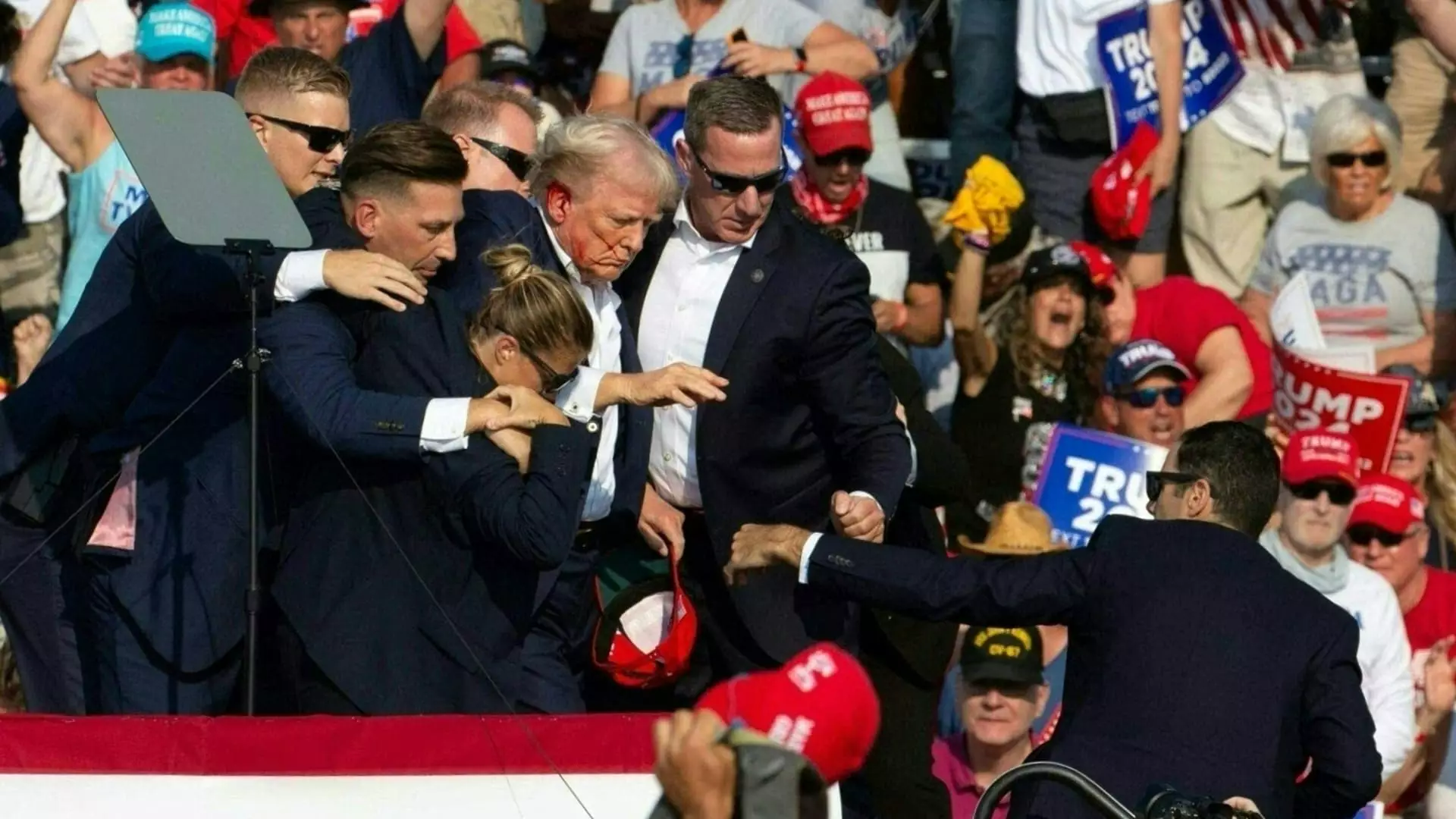The recent assassination attempt on former U.S. President Donald Trump has triggered a wave of international outrage and solidarity among world leaders. The incident, which took place at a campaign rally in Butler, Pennsylvania, marks a distressing moment for American democracy and raises serious questions about the safety of political figures in a highly polarized landscape. The shooting, which resulted in tragic casualties and injuries, has prompted unambiguous condemnation from across the globe, emphasizing a collective rejection of violence in politics.
The events unfolded dramatically when Trump was targeted during his rally, sustaining a gunshot wound to the ear. The assailant, identified by federal authorities as 20-year-old Thomas Matthew Crooks, was shot dead by Secret Service agents who were swiftly on the scene. While Trump’s injury, fortunately, does not appear life-threatening, the incident resulted in the loss of a bystander’s life and left two other attendees critically injured. This spontaneous outbreak of violence underscores the fragile nature of political discourse in the current environment.
In the wake of the attack, global leaders from various nations expressed their shock and outrage. Canadian Prime Minister Justin Trudeau described himself as “sickened” by the events, offering his condolences to Trump and the American populace. This sentiment resonated across Europe as leaders from G-20 nations, including Germany, France, and Italy, collectively extended their best wishes for Trump’s recovery while voicing strong disapproval of political violence.
Newly elected U.K. Prime Minister Keir Starmer’s condemnation was particularly robust; he emphasized that “political violence in any form has no place in our societies.” Echoing this sentiment, French President Emmanuel Macron lamented the incident as “a tragedy for our democracies,” showing solidarity with the American people.
Beyond the transatlantic allies, Asian leaders also issued statements denouncing the violence. China’s President Xi Jinping expressed his sympathies, demonstrating that regardless of the political climate or rivalries, violence against political figures is universally condemned. Japan’s Prime Minister Fumio Kishida reiterated the necessity of standing firm against any forms of violence that threaten democratic governance. India’s Prime Minister Narendra Modi, referring to Trump as “my friend,” also condemned the violence, reinforcing a commitment to peace in political engagement.
Back in the U.S., the tone was similarly united. Across the political spectrum, leaders from both the Republican and Democratic parties communicated their dismay over the shooting. President Joe Biden’s Oval Office address encapsulated the bipartisan outrage, as he called for a cooling of political temperatures. His plea for unity resonated with the nationwide audience, encapsulating a shared understanding among Americans that despite their differing views, they must reject violence as a means of political expression.
Biden’s remarks that “disagreement is inevitable in American democracy” illustrates the core of the democratic process—that differences of opinion should never lead to violence. By asserting that “politics must never be a battlefield,” the president reaffirmed his commitment to fostering a more civil political discourse.
Moreover, Vice President Kamala Harris and former President Barack Obama echoed these sentiments, emphasizing the necessity to condemn acts of violence unequivocally. Harris characterized the shooting as an “abhorrent act” that warranted immediate moral outrage, while Obama reiterated that there is “absolutely no place for political violence in our democracy.”
Implications for Democracy and Political Dialogue
The assassination attempt on Trump is a stark reminder of the volatility that can accompany political opposition and rivalry. It raises profound questions about the current state of American democracy, highlighting the necessity for leaders to foster a culture where political opposition does not lead to violence. The broad condemnation from world leaders not only underscores a collective respect for democratic norms but also signals an urgent call to action to safeguard political figures and, by extension, democratic institutions themselves.
Political violence must be viewed not just as an isolated incident but as a potential indicator of deeper societal divides. Global leaders’ responses serve as crucial reminders that the principles of respect, dialogue, and peaceful disagreement must take precedence. In an age marked by strife and division, a cultural pivot toward respectful debate and shared humanity may be the key to restoring faith in democratic processes and ensuring the safety of all political actors.


Leave a Reply